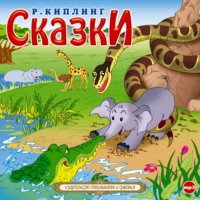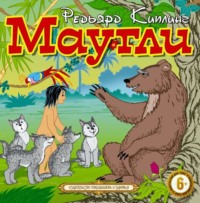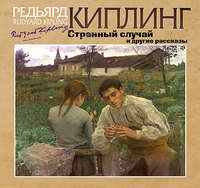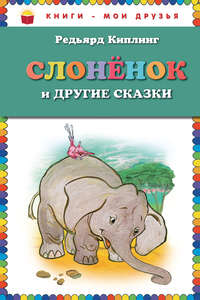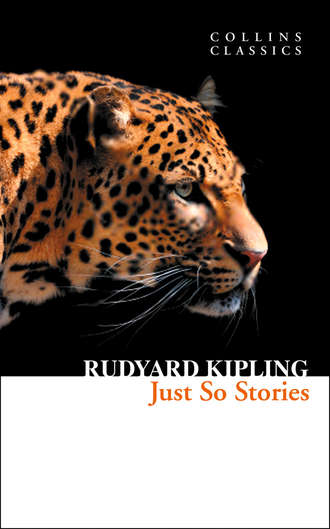
Полная версия
Just So Stories

The Elephant’s Child
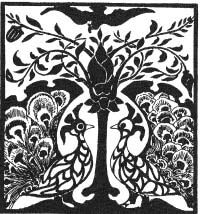
In the High and Far-Off Times the Elephant, O Best Beloved, had no trunk. He had only a blackish, bulgy nose, as big as a boot, that he could wriggle about from side to side; but he couldn’t pick up things with it. But there was one Elephant – a new Elephant – an Elephant’s Child – who was full of ’satiable curtiosity, and that means he asked ever so many questions. And he lived in Africa, and he filled all Africa with his ’satiable curtiosities. He asked his tall aunt, the Ostrich, why her tail-feathers grew just so, and his tall aunt the Ostrich spanked him with her hard, hard claw. He asked his tall uncle, the Giraffe, what made his skin spotty, and his tall uncle, the Giraffe, spanked him with his hard, hard hoof. And still he was full of ’satiable curtiosity! He asked his broad aunt, the Hippopotamus, why her eyes were red, and his broad aunt, the Hippopotamus, spanked him with her broad, broad hoof; and he asked his hairy uncle, the Baboon, why melons tasted just so, and his hairy uncle, the Baboon, spanked him with his hairy, hairy paw. And still he was full of ’satiable curtiosity! He asked questions about everything that he saw, or heard, or felt, or smelt, or touched, and all his uncles and his aunts spanked him. And still he was full of ’satiable curtiosity!
One fine morning in the middle of the Precession of the Equinoxes this ’satiable Elephant’s Child asked a new fine question that he had never asked before. He asked, ‘What does the Crocodile have for dinner?’ Then everybody said, ‘Hush!’ in a loud and dretful tone, but they spanked him immediately and directly, without stopping, for a long time.
By and by, when that was finished, he came upon Kolokolo Bird sitting in the middle of a wait-a-bit thornbush, and he said, ‘My father has spanked me, and my mother has spanked me; all my aunts and uncles have spanked me for my ’satiable curtiosity; and still I want to know what the Crocodile has for dinner!’
Then Kolokolo Bird said, with a mournful cry, ‘Go to the banks of the great grey-green, greasy Limpopo River, all set about with fever-trees, and find out.’
That very next morning, when there was nothing left of the Equinoxes, because the Precession had preceded according to precedent, this ’satiable Elephant’s Child took a hundred pounds of bananas (the little short red kind), and a hundred pounds of sugar-cane (the long purple kind), and seventeen melons (the greeny-crackly kind), and said to all his dear families, ‘Good-bye. I am going to the great grey-green, greasy Limpopo River, all set about with fever-trees, to find out what the Crocodile has for dinner.’ And they all spanked him once more for luck, though he asked them most politely to stop.
Then he went away, a little warm, but not at all astonished, eating melons, and throwing the rind about, because he could not pick it up.
He went from Graham’s Town to Kimberley, and from Kimberley to Khama’s Country, and from Khama’s Country he went east by north, eating melons all the time, till at last he came to the banks of the great grey-green, greasy Limpopo River, all set about with fevertrees, precisely as Kolokolo Bird had said.
Now you must know and understand, O Best Beloved, that till that very week, and day, and hour, and minute, this ’satiable Elephant’s Child had never seen a Crocodile, and did not know what one was like. It was all his ’satiable curtiosity.
The first thing that he found was a Bi-Coloured-Python-Rock-Snake curled round a rock.
‘’Scuse me,’ said the Elephant’s Child most politely, ‘but have you seen such a thing as a Crocodile in these promiscuous parts?’
‘Have I seen a Crocodile?’ said the Bi-Coloured-Python-Rock-Snake, in a voice of dretful scorn. ‘What will you ask me next?’
‘’Scuse me,’ said the Elephant’s Child, ‘but could you kindly tell me what he has for dinner?’
Then the Bi-Coloured-Python-Rock-Snake uncoiled himself very quickly from the rock, and spanked the Elephant’s Child with his scalesome, flailsome tail.
‘That is odd,’ said the Elephant’s Child, ‘because my father and my mother, and my uncle and my aunt, not to mention my other aunt, the Hippopotamus, and my other uncle, the Baboon, have all spanked me for my ’satiable curtiosity – and I suppose this is the same thing.’
So he said good-bye very politely to the Bi-Coloured-Python-Rock-Snake, and helped to coil him up on the rock again, and went on, a little warm, but not at all astonished, eating melons, and throwing the rind about, because he could not pick it up, till he trod on what he thought was a log of wood at the very edge of the great grey-green, greasy Limpopo River, all set about with fever-trees.
But it was really the Crocodile, O Best Beloved, and the Crocodile winked one eye – like this!
‘’Scuse me,’ said the Elephant’s Child most politely, ‘but do you happen to have seen a Crocodile in these promiscuous parts?’
Then the Crocodile winked the other eye, and lifted half his tail out of the mud; and the Elephant’s Child stepped back most politely, because he did not wish to be spanked again.
‘Come hither, Little One,’ said the Crocodile. ‘Why do you ask such things?’
‘’Scuse me,’ said the Elephant’s Child most politely, ‘but my father has spanked me, my mother has spanked me, not to mention my tall aunt, the Ostrich, and my tall uncle, the Giraffe, who can kick ever so hard, as well as my broad aunt, the Hippopotamus, and my hairy uncle, the Baboon, and including the Bi-Coloured-Python-Rock-Snake, with the scalesome, flailsome tail, just up the bank, who spanks harder than any of them; and so, if it’s quite all the same to you, I don’t want to be spanked any more.’
‘Come hither, Little One,’ said the Crocodile, ‘for I am the Crocodile,’ and he wept crocodile-tears to show it was quite true.
Then the Elephant’s Child grew all breathless, and panted, and kneeled down on the bank and said, ‘You are the very person I have been looking for all these long days. Will you please tell me what you have for dinner?’
‘Come hither, Little One,’ said the Crocodile, ‘and I’ll whisper.’
Then the Elephant’s Child put his head down close to the Crocodile’s musky, tusky mouth, and the Crocodile caught him by his little nose, which up to that very week, day, hour, and minute, had been no bigger than a boot, though much more useful.
‘I think,’ said the Crocodile – and he said it between his teeth, like this – ‘I think to-day I will begin with Elephant’s Child!’
At this, O Best Beloved, the Elephant’s Child was much annoyed, and he said, speaking through his nose, like this, ‘Led go! You are hurtig be!’
Then the Bi-Coloured-Python-Rock-Snake scuffled down from the bank and said, ‘My young friend, if you do not now, immediately and instantly, pull as hard as ever you can, it is my opinion that your acquaintance in the large-pattern leather ulster’ (and by this he meant the Crocodile) ‘will jerk you into yonder limpid stream before you can say Jack Robinson.’
This is the way Bi-Coloured-Python-Rock-Snakes always talk.
Then the Elephant’s Child sat back on his little haunches, and pulled, and pulled, and pulled, and his nose began to stretch. And the Crocodile floundered into the water, making it all creamy with great sweeps of his tail, and he pulled, and pulled, and pulled.
And the Elephant’s Child’s nose kept on stretching; and the Elephant’s Child spread all his little four legs and pulled, and pulled, and pulled, and his nose kept on stretching; and the Crocodile threshed his tail like an oar, and he pulled, and pulled, and pulled, and at each pull the Elephant’s Child’s nose grew longer and longer – and it hurt him hijjus!
Then the Elephant’s Child felt his legs slipping, and he said through his nose, which was now nearly five feet long, ‘This is too butch for be!’
Then the Bi-Coloured-Python-Rock-Snake came down from the bank, and knotted himself in a double-clove-hitch round the Elephant’s Child’s hind-legs, and said, ‘Rash and inexperienced traveller, we will now seriously devote ourselves to a little high tension, because if we do not, it is my impression that yonder self-propelling man-of-war with the armour-plated upper deck’ (and by this, O Best Beloved, he meant the Crocodile) ‘will permanently vitiate your future career.’
That is the way all Bi-Coloured-Python-Rock-Snakes always talk.
So he pulled, and the Elephant’s Child pulled, and the Crocodile pulled; but the Elephant’s Child and the Bi-Coloured-Python-Rock-Snake pulled hardest; and at last the Crocodile let go of the Elephant’s Child’s nose with a plop that you could hear all up and down the Limpopo.
Then the Elephant’s Child sat down most hard and sudden; but first he was careful to say ‘Thank you’ to the Bi-Coloured-Python-Rock-Snake; and next he was kind to his poor pulled nose, and wrapped it all up in cool banana leaves, and hung it in the great grey-green, greasy Limpopo to cool.
‘What are you doing that for?’ said the Bi-Coloured-Python-Rock-Snake.
‘’Scuse me,’ said the Elephant’s Child, ‘but my nose is badly out of shape, and I am waiting for it to shrink.’
‘Then you will have to wait a long time,’ said the Bi-Coloured-Python-Rock-Snake. ‘Some people do not know what is good for them.’
The Elephant’s Child sat there for three days waiting for his nose to shrink. But it never grew any shorter, and, besides, it made him squint. For, O Best Beloved, you will see and understand that the Crocodile had pulled it out into a really truly trunk same as all Elephants have to-day.
At the end of the third day a fly came and stung him on the shoulder, and before he knew what he was doing he lifted up his trunk and hit that fly dead with the end of it.
‘’Vantage number one!’ said the Bi-Coloured-Python-Rock-Snake. ‘You couldn’t have done that with a mere-smear nose. Try and eat a little now.’
Before he thought what he was doing the Elephant’s Child put out his trunk and plucked a large bundle of grass, dusted it clean against his fore-legs, and stuffed it into his own mouth.
‘’Vantage number two!’ said the Bi-Coloured-Python-Rock-Snake. ‘You couldn’t have done that with a mere-smear nose. Don’t you think the sun is very hot here?’
‘It is,’ said the Elephant’s Child, and before he thought what he was doing he schlooped up a schloop of mud from the banks of the great grey-green, greasy Limpopo, and slapped it on his head, where it made a cool schloopy-sloshy mud-cap all trickly behind his ears.
‘’Vantage number three!’ said the Bi-Coloured-Python-Rock-Snake. ‘You couldn’t have done that with a mere-smear nose. Now how do you feel about being spanked again?’
‘’Scuse me,’ said the Elephant’s Child, ‘but I should not like it at all.’
‘How would you like to spank somebody?’ said the Bi-Coloured-Python-Rock-Snake.
‘I should like it very much indeed,’ said the Elephant’s Child.
‘Well,’ said the Bi-Coloured-Python-Rock-Snake, ‘you will find that new nose of yours very useful to spank people with.’
‘Thank you,’ said the Elephant’s Child, ‘I’ll remember that; and now I think I’ll go home to all my dear families and try.’
So the Elephant’s Child went home across Africa frisking and whisking his trunk. When he wanted fruit to eat he pulled fruit down from a tree, instead of waiting for it to fall as he used to do. When he wanted grass he plucked grass up from the ground, instead of going on his knees as he used to do.
When the flies bit him he broke off the branch of a tree and used it as a fly-whisk; and he made himself a new, cool, slushy-squshy mud-cap whenever the sun was hot. When he felt lonely walking through Africa he sang to himself down his trunk, and the noise was louder than several brass bands. He went especially out of his way to find a broad Hippopotamus (she was no relation of his), and he spanked her very hard, to make sure that the Bi-Coloured-Python-Rock-Snake had spoken the truth about his new trunk. The rest of the time he picked up the melon rinds that he had dropped on his way to the Limpopo – for he was a Tidy Pachyderm.
One dark evening he came back to all his dear families, and he coiled up his trunk and said, ‘How do you do?’ They were very glad to see him, and immediately said, ‘Come here and be spanked for your ’satiable curtiosity.’
‘Pooh,’ said the Elephant’s Child. ‘I don’t think you peoples know anything about spanking; but I do, and I’ll show you.’
Then he uncurled his trunk and knocked two of his dear brothers head over heels.
‘O Bananas!’ said they, ‘where did you learn that trick, and what have you done to your nose?’
‘I got a new one from the Crocodile on the banks of the great grey-green, greasy Limpopo River,’ said the Elephant’s child. ‘I asked him what he had for dinner, and he gave me this to keep.’
‘It looks very ugly,’ said his hairy uncle, the Baboon.
‘It does,’ said the Elephant’s Child. ‘But it’s very useful,’ and he picked up his hairy uncle, the Baboon, by one hairy leg, and hove him into a hornet’s nest.
Then that bad Elephant’s Child spanked all his dear families for a long time, till they were very warm and greatly astonished. He pulled out his tall Ostrich aunt’s tail-feathers; and he caught his tall uncle, the Giraffe, by the hind-leg, and dragged him through a thorn-bush; and he shouted at his broad aunt, the Hippopotamus, and blew bubbles into her ear when she was sleeping in the water after meals; but he never let any one touch Kolokolo Bird.
At last things grew so exciting that his dear families went off one by one in a hurry to the banks of the great grey-green, greasy Limpopo River, all set about with fever-trees, to borrow new noses from the Crocodile. When they came back nobody spanked anybody any more; and ever since that day, O Best Beloved, all the Elephants you will ever see, besides all those that you won’t, have trunks precisely like the trunk of the ’satiable Elephant’s Child.
This is the Elephant’s Child having his nose pulled by the Crocodile. He is much surprised and astonished and hurt, and he is talking through his nose and saying, ‘Led go! You are hurting be!’ He is pulling very hard, and so is the Crocodile; but the Bi-Coloured-Python-Rock-Snake is hurrying through the water to help the Elephant’s Child. All that black stuff is the banks of the great grey-green, greasy Limpopo River (but I am not allowed to paint these pictures), and the bottly-tree with the twisty roots and the eight leaves is one of the fever-trees that grow there.
Underneath the truly picture are shadows of African animals walking into an African ark. There are two lions, two ostriches, two oxen, two camels, two sheep, and two other things that look like rats, but I think they are rock-rabbits. They don’t mean anything. I put them in because I thought they looked pretty. They would look very fine if I were allowed to paint them.

This is just a picture of the Elephant’s Child going to pull bananas off a banana-tree after he had got his fine new long trunk. I don’t think it is a very nice picture; but I couldn’t make it any better, because elephants and bananas are hard to draw. The streaky things behind the Elephant’s Child mean squoggy marshy country somewhere in Africa. The Elephant’s Child made most of his mud-cakes out of the mud that he found there. I think it would look better if you painted the banana-tree green and the Elephant’s Child red.

I KEEP six honest serving-men
(They taught me all I knew);
Their names are What and Why and When
And How and Where and Who.
I send them over land and sea,
I send them east and west;
But after they have worked for me,
I give them all a rest.
I let them rest from nine till five,
For I am busy then,
As well as breakfast, lunch, and tea,
For they are hungry men:
But different folk have different views;
I know a person small –
She keeps ten million serving-men,
Who get no rest at all!
She sends ’em abroad on her own affairs,
From the second she opens her eyes –
One million Hows, two million Wheres,
And seven million Whys!
The Sing-Song of Old Man Kangaroo

Not always was the Kangaroo as now we do behold him, but a Different Animal with four short legs. He was grey and he was woolly, and his pride was inordinate: he danced on an outcrop in the middle of Australia, and he went to the Little God Nqa.
He went to Nqa at six before breakfast, saying, ‘Make me different from all other animals by five this afternoon.’
Up jumped Nqa from his seat on the sand-flat and shouted, ‘Go away!’
He was grey and he was woolly, and his pride was inordinate: he danced on a rock-ledge in the middle of Australia, and he went to the Middle God Nquing.
He went to Nquing at eight after breakfast, saying, ‘Make me different from all other animals; make me, also, wonderfully popular by five this afternoon.’
Up jumped Nquing from his burrow in the spinifex and shouted, ‘Go away!’
He was grey and he was woolly, and his pride was inordinate: he danced on a sandbank in the middle of Australia, and he went to the Big God Nqong.
He went to Nqong at ten before dinner-time, saying, ‘Make me different from all other animals; make me popular and wonderfully run after by five this afternoon.’
Up jumped Nqong from his bath in the salt-pan and shouted, ‘Yes, I will!’
Nqong called Dingo – Yellow-Dog Dingo – always hungry, dusty in the sunshine, and showed him Kangaroo. Nqong said, ‘Dingo! Wake up, Dingo! Do you see that gentleman dancing on an ashpit? He wants to be popular and very truly run after. Dingo, make him so!’
Up jumped Dingo – Yellow-Dog Dingo – and said, ‘What, that cat-rabbit?’
Off ran Dingo – Yellow-Dog Dingo – always hungry, grinning like a coal-scuttle, – ran after Kangaroo.
Off went the proud Kangaroo on his four little legs like a bunny.
This, O Beloved of mine, ends the first part of the tale!
He ran through the desert; he ran through the mountains; he ran through the salt-pans; he ran through the reed-beds; he ran through the blue gums; he ran through the spinifex; he ran till his front legs ached.
He had to!
Still ran Dingo – Yellow-Dog Dingo – always hungry, grinning like a rat-trap, never getting nearer, never getting farther, – ran after Kangaroo.
He had to!
Still ran Kangaroo – Old Man Kangaroo. He ran through the ti-trees; he ran through the mulga; he ran through the long grass; he ran through the short grass; he ran through the Tropics of Capricorn and Cancer; he ran till his hind legs ached.
He had to!
This is a picture of Old Man Kangaroo when he was the Different Animal with four short legs. I have drawn him grey and woolly, and you can see that he is very proud because he has a wreath of flowers in his hair. He is dancing on an outcrop (that means a ledge of rock) in the middle of Australia at six o’clock before breakfast. You can see that it is six o’clock, because the sun is just getting up. The thing with the ears and the open mouth is Little God Nqa. Nqa is very much surprised, because he has never seen a Kangaroo dance like that before. Little God Nqa is just saying, ‘Go away,’ but the Kangaroo is so busy dancing that he has not heard him yet.
The Kangaroo hasn’t any real name except Boomer. He lost it because he was so proud.
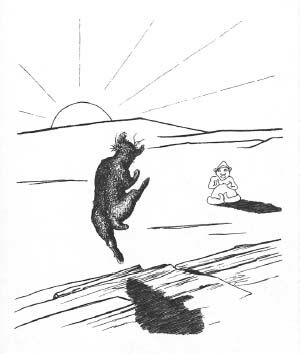
This is the picture of Old Man Kangaroo at five in the afternoon, when he had got his beautiful hind legs just as Big God Nqong had promised. You can see that it is five o’clock, because Big God Nqong’s pet tame clock says so. That is Nqong, in his bath, sticking his feet out. Old Man Kangaroo is being rude to Yellow-Dog Dingo. Yellow-Dog Dingo has been trying to catch Kangaroo all across Australia. You can see the marks of Kangaroo’s big new feet running ever so far back over the bare hills. Yellow-Dog Dingo is drawn black, because I am not allowed to paint these pictures with real colours out of the paint-box; and besides, Yellow-Dog Dingo got dreadfully black and dusty after running through the Flinders and the Cinders.
I don’t know the names of the flowers growing round Nqong’s bath. The two little squatty things out in the desert are the other two gods that Old Man Kangaroo spoke to early in the morning. That thing with the letters on it is Old Man Kangaroo’s pouch. He had to have a pouch just as he had to have legs.

Still ran Dingo – Yellow-Dog Dingo – hungrier and hungrier, grinning like a horse-collar, never getting nearer, never getting farther; and they came to the Wollgong River.
Конец ознакомительного фрагмента.
Текст предоставлен ООО «ЛитРес».
Прочитайте эту книгу целиком, купив полную легальную версию на ЛитРес.
Безопасно оплатить книгу можно банковской картой Visa, MasterCard, Maestro, со счета мобильного телефона, с платежного терминала, в салоне МТС или Связной, через PayPal, WebMoney, Яндекс.Деньги, QIWI Кошелек, бонусными картами или другим удобным Вам способом.



